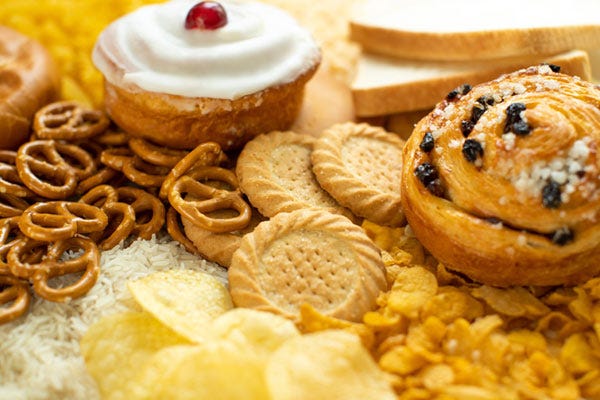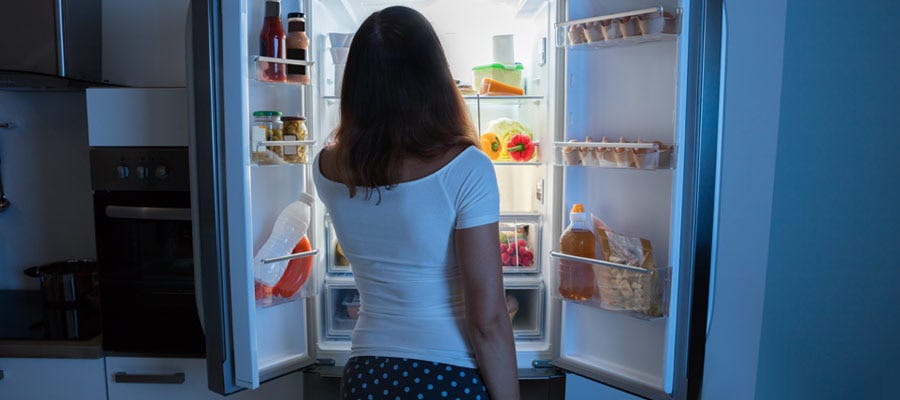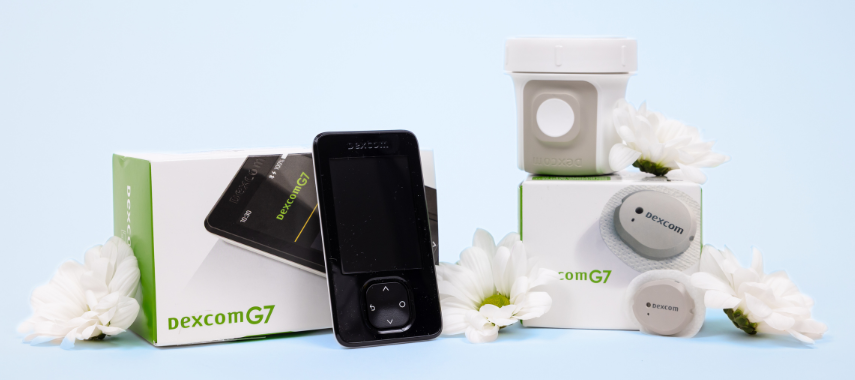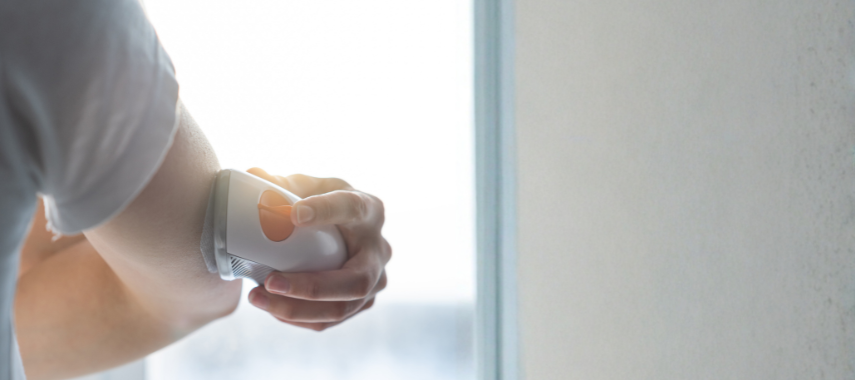Everyone’s body responds differently to foods, so there is no single diet that will work for everyone diagnosed with type 2 or type 1 diabetes. However, some carb-rich foods are not a part of a healthy diabetes diet and should be avoided to promote normal blood sugar levels and weight loss.
In This Article
Cereals
Most cereals contain a lot of added sugars and processed grains. For these reasons, it’s best to avoid cereal as a breakfast option since foods with a high amount of carbohydrates can cause blood sugar levels to spike. A spike in blood sugar may also cause blood sugar levels to crash a few hours later and cause cravings for another carb-rich meal or snack.
It’s important to read food labels and be aware of cereals that include health claims since terms like ‘whole grain’, ‘low-fat’, and ‘heart-healthy’ can be misleading. Chances are, sugar is the second or third ingredient on the nutrition label. According to the Food and Drug Administration, ingredients must be listed in descending order starting with the one used in the most significant amount. If sugar is the second ingredient on the list, it’s the second most common ingredient in that product.
If you can’t avoid cereal, consider reaching for one high in fiber, at least 2.5g per serving, and pay attention to the portion sizes to avoid overeating.
Drinking water all the time can get boring, but it’s important to make sure that when you reach for an alternative, it’s not loaded with sugar. Beverages are the leading sources of added sugars for Americans accounting for 47% of added sugars.
Coffee and tea are common beverages for most Americans, and while hot teas and coffees (with no added sugar) can be a great option, fancy flavored coffee drinks and teas can pack lots of hidden carbs. For reference, a medium sweet tea from McDonald’s (approximately 21 oz) includes 47g of sugar and 50g of carbohydrates. While a Grande White Chocolate Mocha Frappuccino (16 oz) from Starbucks includes 61g of sugar and carbohydrates.


Sweet Coffees & Teas
The sugar in these popular sweet beverages is double and sometimes triple the daily sugar intake recommended by the American Heart Association. Men should aim to consume no more than 36g and for women no more than 25g per day.
If you enjoy a sweet coffee or tea, limit your consumption and only indulge every once in awhile as a special treat. It may also help to gradually decrease the amount of sugar added to your coffee or tea over time. If you prefer your tea or coffee with cream, try a low-fat dairy product like skim milk as a substitute to cut down on saturated fats.
Soda & Fruit Juices
Sodas and fruit juices also have surprising amounts of added sugars. Consider your typical 12oz can of Coca-Cola, which contains 39g of sugar, or an 8oz serving of Motts apple juice with 28g of sugar. That’s more than your entire day’s worth of sugar in one drink. Even juices labeled as 100% fruit juice or unsweetened are likely to contain copious amounts of sugar from the fruit alone.
It might be tempting to reach for a diet soda as a substitute, but diet or sugar-free beverages include an array of artificial sweeteners. Studies have shown that prolonged consumption of artificial sweeteners directly impacts insulin resistance. Even though low-calorie sodas are low in carbs, it’s best to limit your consumption of all sodas.
It’s also important to keep in mind that generally, liquid carbohydrates are less satisfying, and chances are you won’t eat less later to offset the sugary drink.
French Fries
Pasta is also made with refined flour making it high in carbs and low in fiber. Opt for whole wheat or chickpea pasta high in fiber or a pasta substitute if you still want to enjoy pasta. With all pasta, it’s crucial to watch your portions carefully to avoid overconsumption.
White rice is also processed, but it’s not necessarily a bad option if enriched (vitamins added). Brown rice contains more fiber but only slightly fewer carbs.


Although they are technically made from a starchy vegetable, French fries are high in fat and carbohydrates and should be avoided altogether. A medium fry from Mcdonald’s contains 15g of fat and 43g of carbs and is usually consumed as a side to the main entree that is most likely also packed with carbs.
Frequently consuming fried foods can cause your cholesterol levels to rise, leading to more severe conditions, such as high blood pressure, heart disease, and cancer, and should be eaten in moderation. If you are looking for a healthy substitution for french fries, roasted sweet potatoes or other veggies are a great alternative.
Refined Carbs
Pasta is also made with refined flour making it high in carbs and low in fiber. Opt for whole wheat or chickpea pasta high in fiber or a pasta substitute if you still want to enjoy pasta. With all pasta, it’s crucial to watch your portions carefully to avoid overconsumption.
White rice is also processed, but it’s not necessarily a bad option if enriched (vitamins added). Brown rice contains more fiber but only slightly fewer carbs.
Common Natural Sweeteners
These include common natural sweeteners such as honey, agave, and maple syrup. These sweeteners, though natural, can still cause blood glucose levels to rise and contain similar amounts of carbohydrates as white sugar.
The good news is that a few natural sweeteners are low-carb, but you may not have heard of them. These include things like monk fruit, stevia, and erythritol.
Dried Fruit
According to the American Diabetes Association (ADA), dried fruit can be a good part of a healthy diet if it doesn’t contain added sugars. Be sure to check the packaging for any added ingredients to prevent an unexpected blood sugar spike.
Fresh fruit can be a good alternative, but keep in mind that both fresh fruit and dried fruit contain carbohydrates, so eating the correct portion is crucial. Fresh fruit can also be frozen and mashed into healthy ice cream as a treat.
Managing carbohydrate intake is an essential part of diabetes management, or if you have prediabetes, preventing the development of Type 2 diabetes. Avoiding carb-rich foods can help prevent weight gain and minimize the risk of heart disease, various kidney diseases, and other chronic conditions. If you struggle to make better food choices and cook healthy meals, consider an appointment with a registered dietitian who can help with meal planning or check out our diabetes-friendly grocery list for some nutritional suggestions.
References
5 Natural Sweeteners That Are Good for Your Health
11 Foods and Drinks to Avoid with Diabetes
American Diabetes Association: Eating Well
Effects of carbohydrates on satiety: differences between liquid and solid food
American Heart Association: How much sugar is too much?
Information provided on the Aeroflow Diabetes blog is not intended as a substitute to medical advice or care. Aeroflow Diabetes recommends consulting a doctor if you are experiencing medical issues or concerns.





